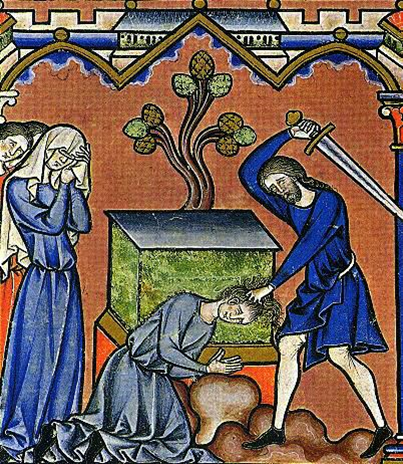Judging the Judges: Searching for Value in these Problematic Characters
The biblical judges are well known for their less than exemplary behavior. In the past, these judges have been appreciated largely as examples of how a charismatic leader should NOT behave. In spite of the judges’ questionable morals, the writer of the book of Hebrews commends four of them (Barak, Gideon, Jephthah, and Samson) for their faith. This paper evaluates these judges in light of their characterizations in the book of Hebrews and in the book of Judges and suggests that our struggle with the judges parallels the contemporary integrity crisis in Christian leadership.
Introduction
‘Time would fail me’, declares the writer of Hebrews, ‘to tell of Gideon, Barak, Samson, Jephthah, of David and Samuel and the prophets—who through faith conquered kingdoms, administered justice, obtained promises, shut the mouths of lions, quenched raging fire, escaped the edge of the sword, won strength out of weakness, became mighty in war, put foreign armies to flight’ (Heb. 11.32-34; NRSV).1 With these words the judges of the Old Testament are forever enshrined as heroes of the faith, and consequently they have served as examples to Christian believers from the First Century until now. Careful readers of the book of Judges, however, might suggest a few changes to Hebrews 11, so that the text would read: ‘Time would fail me to tell of the judges, … who through unbelief tested God, committed murders, pursued pleasure, enabled idolatry, and turned Israel into a land of anarchy’.
As these hypothetical changes to Hebrews show, we are faced with paradoxical depictions of the judges; for although the book of Hebrews applauds the faith of the judges, the book of Judges records the obvious flaws and failings of those same judges.2 Both Jephthah and Samson are particularly unfit for the designation ‘heroes’, given their apparently immoral character. Jephthah is an outlaw who makes a rash vow that results in the sacrifice of his daughter, and Samson is a divinely chosen nazirite who breaks his sacred vows, marries a forbidden foreigner, sleeps with a prostitute, and loses his God given power while asleep on the lap of Delilah.
Judges: lack of spiritual appeal

Did Jephthah really kill his daughter?
The debate over this question has persisted at least since the 18th Century.
This image comes from the Maciejowski Bible (France, c. 1250), via Wikimedia Commons.
In my monograph on the book of Judges, I point out that the human characters of Judges have received the primary attention of biblical scholars while the character of Yahweh has not been sufficiently treated. I argue that considerable theological insight can be mined from Judges by paying attention to the previously unappreciated speeches of God in the book.8 It remains to be seen, however, if anything good can be salvaged when it comes to the actions and attitudes of the judges themselves. Biblical scholarship has doubted that the lives of Barak, Gideon, Jephthah, and Samson can offer any positive theological models for righteousness, holiness, or faithful leadership. Recent interpreters, however, have constructed a theological view of the book of Judges that promises hope for redeeming the judges from the hands of their judges.9
In this paper, I will examine the place of the judges within the argument of the book of Hebrews, and I will evaluate the judges as they are characterized in the narrative of Judges. I will attempt to discover the ways in which the judges may serve as positive figures, and I will suggest connections between the biblical portrait of the judges and our own integrity crisis in contemporary Christian leadership.
Category: Biblical Studies, Fall 2010


